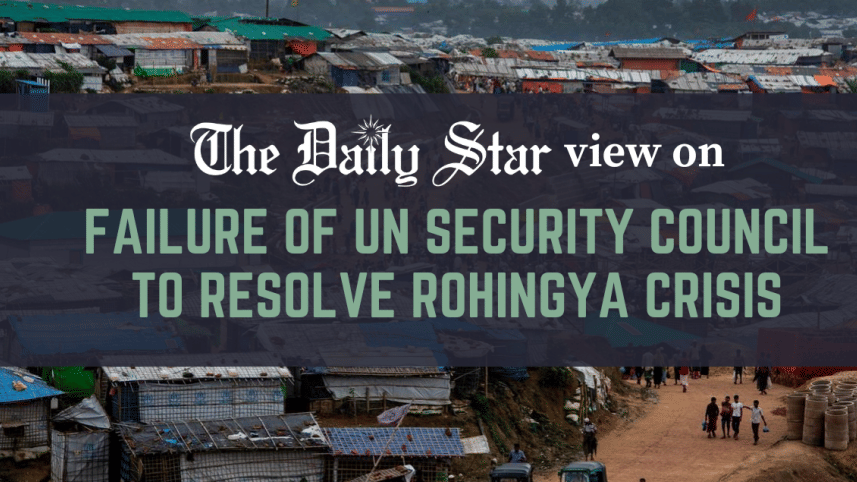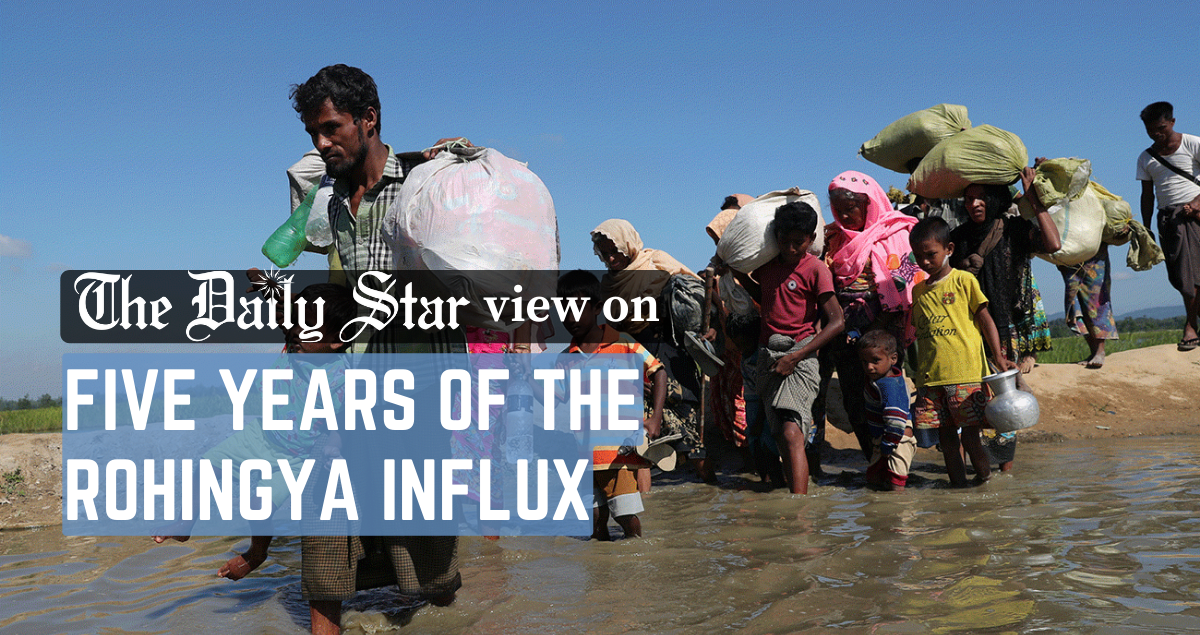Will the UNSC ever hold Myanmar accountable?

We wholeheartedly endorse Law Minister Anisul Huq's call to the UN Security Council (UNSC) to do its part to resolve the protracted Rohingya crisis, instead of being held hostage by political agendas of its member states. Over the last five and a half years, it has failed miserably to take appropriate action against Myanmar's military junta, despite widespread documentation of horrific atrocities carried out against the Rohingya population in their country. Even though there have been some positive developments in the international arena – including the International Court of Justice's verdict allowing the Rohingya genocide case filed by the Gambia to proceed, and the US declaration of the atrocities as genocide – the UNSC is still a long way from holding the Myanmar government accountable and advocating for safe and dignified repatriation of the Rohingya population stranded in Bangladesh and elsewhere.
In December last year, the UNSC adopted the first-ever resolution on the "situation in Myanmar," demanding "immediate release of all arbitrarily detained prisoners," and an "end to all forms of violence." It was the first such resolution on Myanmar in over five decades, and it is astonishing that it took the 15-member council so long to simply come to a consensus in the face of overwhelming evidence of injustice. While we hope that this resolution will finally speed up the process of ending the Myanmar military regime's escalating repression and violence against civilians, especially in the Rakhine state, the UN must recognise that a lot more needs to be done – and fast – if we are to bring back any semblance of normalcy to the lives of the Rohingya people living in a lingering nightmare within and outside the country.
The situation of the Rohingya population in Bangladesh continues to be dire, particularly for the youth, who are growing up in the camps without access to education, employment and hope for a better future. The dream of repatriation gets more distant as years go by, for both the Rohingya and Bangladesh. With global attention shifting to the Russia-Ukraine war over the past year, we must now confront another rude awakening: a slashing of food aid to the Rohingya refugees in Bangladesh. Starting next month, the World Food Programme (WFP) will reportedly reduce the value of its food assistance to USD 10 per person from USD 12, which will no doubt lead to increased food insecurity and malnutrition of an already vulnerable population.
Both Bangladesh and the Rohingya population find themselves in a precarious situation. The Rohingya need more support – not just food and basic amenities, but education, skills and livelihood opportunities – so that the camps don't turn into hotbeds of crimes and extremism. The government of Bangladesh must be more strategic in its short-, medium- and long-term visions for rehabilitating this population, and engage more meaningfully with its trade partners, particularly Russia, China and India, whose reluctance to act in the Myanmar issue has stalled actions in the UNSC. It is also time for the UN to prove that it can do more than simply pay lip service to peace and human rights, and provide lasting solutions to one of the most pressing crises of recent times.



 For all latest news, follow The Daily Star's Google News channel.
For all latest news, follow The Daily Star's Google News channel. 

Comments